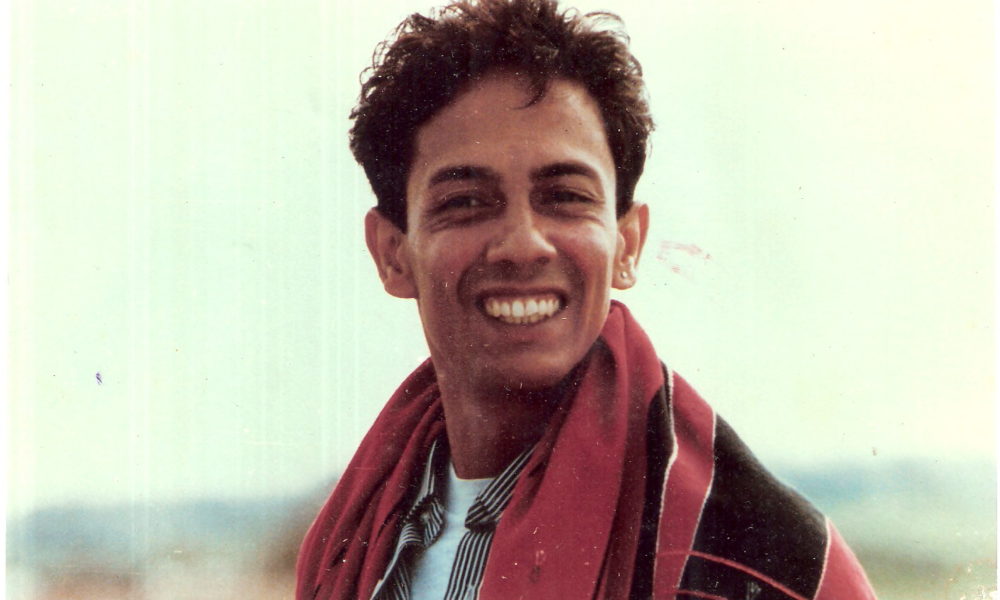
Dominic D’Souza of Goa is considered as ‘patient zero’ of HIV in India. The first of the patients to face societal vileness reserved for those with the disease, his was a case that would change HIV treatment in India for good.
No love on Valentine’s Day
In 1989, Dominic was 29 years old. It was on the Valentine’s Day of that year that he was whisked away from his home in Parra by the policeman who arrived unannounced. David had just completed his breakfast with his mom and aunt.
He wasn’t given any reason for why he was being taken away. Instead he was led to the police station and a hospital. He also came under a barrage of questions-mostly about his sex life. Eventually he was told that he carried the HIV virus.
25 years have passed since Dominic succumbed to the disease. His was the first HIV-related case to reach the Indian courts.
Handcuffed, locked up in a sanatorium
First, he was handcuffed and locked up in an abandoned TB sanatorium. But the legal case challenged the Goa Public Health Amendment Act that made it mandatory to isolate HIV-positive persons. Dominic’s case has since become the basis for the struggle for equal rights to treatment and care for HIV patients in India.
Dominic was still physically fit during the time of his arrest. He had maintained that he carried the virus but was not an AIDS patient- even as he got quarantined with rats. He made his way out with the aid of the legal machinery 64 days later. But once he was released, he found that he has lost his job. Rather than playing the victim, he became an HIV-positive activist, India’s first of his kind.
He went on to set up Positive People- an NGO for the rights of the HIV-infected, thanks to which Goa became a key hub for AIDS activism. As Isabel de Santa-Rita Vaz, his friend who continued his mission with the NGO says, “His agony was unbearable for us. Dominic knew it wouldn’t be possible to achieve total freedom from infection but wanted to start an organization that could combat discrimination.”
Thanks to Dominic’s activism, the state amended the Goa Public Health Act, making detention optional. However, three years later, Dominic passed away. He was 33 at the time. In his obituary that appeared in Goan newspapers in 1992, it reads, “Dominic lived with AIDS, but he lived not to be ashamed.”
“He is survived by his twin brother who lives in Sweden, a sister in Mombasa and another brother in the US,” says Vaz.
Challenges remain
India has an estimated 2.1 million HIV-positive persons at present. Diagnosis is not a death sentence in the country any more. The medicines are now easier to access than before, helping them live longer and regular lives. However, the challenges are many.
Vaz says that the stigma that the disease carries along with its association with homosexuality, sex work and drug use are factors that keep people from changing their attitudes. She said that another huge challenge is “funding.”
However, that’s not to say that Dominic’s fight was for nothing. Thanks to his initiative, the national conversation on the disease has changed and it also paved the way to the HIV/AIDS Bill that was passed by Parliament last month. “The dream of having an integrationist approach which requires testing with informed consent and preserving confidentiality and integration of the individual in society has been passed,” says Anand Grover, Dominic’s counsel. Grover has been fighting for HIV patients in court ever since he first met Dominic. “We not only became good friends but worked to oppose the Centre from adopting the Goa Public Health Act model nationally. That was India’s first movement on HIV issues,” he says.
The recent bill passed by Parliament was drafted by Grover’s Lawyers Collective. However, Grover is unsure of the ‘test and treat’ policy of giving ART as soon as someone tests positive, regardless of his CD count or the clinical stage which it introduced. “India is still far from the goal of complying with the 500 CD count regimen even now,” says Grover. “Moreover, the caveat it introduced about treatment services being provided ‘as far as possible’ could be an escape route for government to evade its obligations. A lot remains to be done.”
A promise made
Shortly before his death in May 1992, Dominic made Gover promise something. “A promise I did not realize would have a profound impact on me. It was May 22, 1992. I got a call about Dominic being seriously ill and in Breach Candy hospital in Mumbai. I rushed there. The otherwise handsome young man was skin and bones, but he was only interested in what I was doing for HIV issues. Whether by design or accident, it became a promise that I’d continue doing legal work for HIV rights.”
The cases that Grover now handles mainly include those about access to medicines, discrimination and also negligence of health care workers.
With inputs from The Times of India
Image credits: thenightchild.blogspot.in